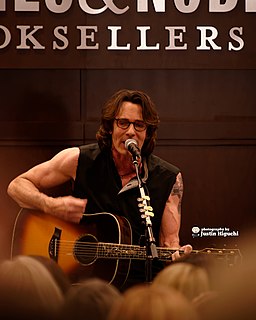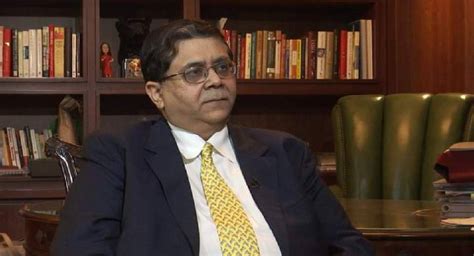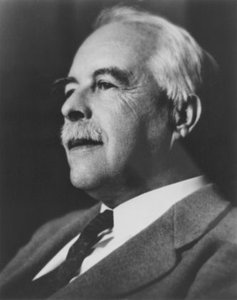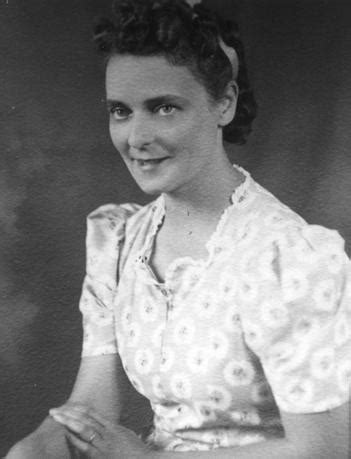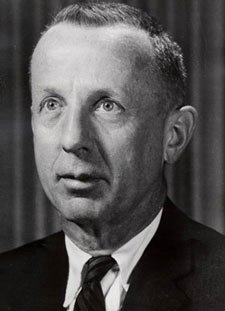Top 1008 Practically Quotes & Sayings - Page 17
Explore popular Practically quotes.
Last updated on December 24, 2024.
The only good grades I ever got in school before I was kicked out were for creative writing. I thought that fiction might be in my future but then my career took a different path once the Beatles showed me what a blast being in a band could be. Writing my memoir Late, Late at Night reminded me how much I love the craft. So I decided to give fiction a shot again.Magnificent Vibration is the result. I’m still not quite sure where it came from, but once I got going, it practically wrote itself. I’ve heard writers I admire speak of that phenomenon, so maybe I’m on the right track.
I am in Birmingham because injustice is here. Just as the eighth century prophets left their little villages and carried their "thus saith the Lord" far beyond the boundaries of their home towns; and just as the Apostle Paul left his little village of Tarsus and carried the gospel of Jesus Christ to practically every hamlet and city of the Graeco-Roman world, I too am compelled to carry the gospel of freedom beyond my particular home town. Like Paul, I must constantly respond to the Macedonian call for aid.
I really only write about inner landscapes and most people don't see them, because they see practically nothing within, because they think that because it's inside, it's dark, and so they don't see anything. I don't think I've ever yet, in any of my books, described a landscape. There's really nothing of the kind in any of them. I only ever write concepts. And so I'm always referring to "mountains" or "a city" or "streets." But as to how they look: I've never produced a description of a landscape. That's never even interested me.
Some communities don't permit open, honest inquiry about the things that matter most. Lots of people have voiced a concern, expressed a doubt, or raised a question, only to be told by their family, church, friends, or tribe: "We don't discuss those things here." I believe the discussion itself is divine. Abraham does his best to bargain with God, most of the book of Job consists of arguments by Job and his friends about the deepest questions of human suffering, God is practically on trial in the book of Lamentations, and Jesus responds to almost every question he's asked with...a question.
Here's Hillary Clinton getting away with tying the Republicans to rich people. She's tying the Republican Party to Wall Street, to the big banks. She's tying the Republican Party to the financial crisis in 2008. It's all their fault. She's tying herself as with the low-income crowd - and the average, ordinary middle class American - as their champion, as their defender. They don't know that it's not the Republicans in bed with banks. They don't know that it's the banks that are practically paying for and underwriting the Democrat Party and Hillary Clinton today.
Modesty teaches us to speak of the ancients with respect, especially when we are not very familiar with their works. Newton, who knew them practically by heart, had the greatest respect for them, and considered them to be men of genius and superior intelligence who had carried their discoveries in every field much further than we today suspect, judging from what remains of their writings. More ancient writings have been lost than have been preserved, and perhaps our new discoveries are of less value than those that we have lost.
The rewrites are a struggle right now. Sometimes I wish writing a book could just be easy for me at last. But when I think about it practically, I am glad it's a struggle. I am (as usual) attempting to write a book that's too hard for me. I'm telling a story I'm not smart enough to tell. The risk of failure is huge. But I prefer it this way. I'm forced to learn, forced to smarten myself up, forced to wrestle. And if it works, then I'll have written something that is better than I am.
Artists use frauds to make human beings seem more wonderful than they really are. Dancers show us human beings who move much more gracefully than human beings really move. Films and books and plays show us people talking much more entertainingly than people really talk, make paltry human enterprises seem important. Singers and musicians show us human beings making sounds far more lovely than human beings really make. Architects give us temples in which something marvelous is obviously going on. Actually, practically nothing is going on.
To be honest, I didn't want to get inside Jones's head. Every time I wrote about Jim Jones I practically had to tie myself to my chair to force myself to do it; I hated him so much. He wanted to go down in history and he did. He's had hundreds of books and articles written about him. I was much more interested in the stories of the rank-and-file members of Peoples Temple, what drew them to Jones, and what they did once they were trapped in Jonestown and realized Jones was intent on killing them.
The way she told it, she was such a criminal even the most God-fearing church ladies got bored of reporting on her; she did the marketing on Sunday, dropped by any church she liked or none at all, was a feminist (which Mrs. Asher sometimes confused with communist), a Democrat (which Mrs. Lincoln pointed out practically had "demon" in the word itself), and, worst of all, a vegetarian (which ruled out any dinner invitations from Mrs. Snow).
It is worthwhile adding that the power of the poem to teach not only sensibilities and the subtle movements of the spirit but knowledge, real lasting felt knowledge, is going mostly unnoticed among our scholars. The body of knowledge locked into and releasable from poetry can replace practically any university in the Republic. First things first, then: the primal importance of a poem is what it can add to the individual mind.Poetry is the voice of a poet at its birth, and the voice of a people in its ultimate fulfillment as a successful and useful work of art.
The German landscape is something unique that we cannot disturb and have no right to destroy. The more densely populated our 'living space' becomes with settlements, the greater our hunger will grow for unspoilt nature. The ever increasing spiritual damage caused by life within the big city will make this hunger practically uncontrollable... when we build here on this the landscape of our homeland we must be clear that we will protect its beauty; and in places where this beauty has already disappeared, we will reconstruct it.
As a kid, in the Runaways, I would see the interviewers start to ask about our personal lives and what we did — and I could see the look in their eyes. They were practically frothing at the mouth. So if I answered these questions, I knew they were never gonna talk about the music. It was like that instinct — don’t go there, man. Have boundaries. Have mystery. You don’t have to let everybody in! I want to be singing to everybody, and I want everybody to think that I’m singing to them. Guys, girls and everyone in between.
Human stories are practically always about one thing, really, aren't they? Death. The inevitability of death. . . . . . (quoting an obituary) 'There is no such thing as a natural death. Nothing that ever happens to man is natural, since his presence calls the whole world into question. All men must die, but for every man his death is an accident, and even if he knows it he would sense to it an unjustifiable violation.' Well, you may agree with the words or not, but those are the key spring of The Lord Of The Rings
As I've gotten older, I can look at myself more clearly and own the things that I'm good at and work on the things that I'm not. Like, I am not skinny. I know that if I were to lose a little weight I'd literally have more time in the morning because I know clothes would fit better. And now I can look at those things more practically. Instead of being like, "What does that say about me?," now I'm just like, "That would be great to sleep in an extra fifteen minutes because I wasn't trying on everything in my closet."
It is certainly true that cooking is therapeutic, creative and all those other faintly creepy self-helpish words. I would love to tell you that learning to cook was part of my journey toward actualization. I would love to tell Oprah this. I would love to tell Oprah this while weeping. But I learned to cook for a much simpler reason: in the abject hope that people would spend time with me if I put good things in their mouth. It is, in other words (like practically everything else I do), a function of my desperation for emotional connection and acclaim.
Indeed, nothing more beautifully simplifying has ever happened in the history of science than the whole series of discoveries culminating about 1914 which finally brought practically universal acceptance to the theory that the material world contains but two fundamental entities, namely, positive and negative electrons, exactly alike in charge, but differing widely in mass, the positive electron-now usually called a proton-being 1850 times heavier than the negative, now usually called simply the electron.
But one type of book that practically no one likes to read is a book about the law. Books about the law are notorious for being very long, very dull, and very difficult to read. This is one reason many lawyers make heaps of money. The money is an incentive - the word "incentive" here means "an offered reward to persuade you to do something you don't want to do - to read long, dull, and difficult books.
Robert Frost says in a piece of homely doggerel that he has hoped wisdom could be not only Attic but Laconic, Boeotian even - "at least not systematic"; but how systematically Frostian the worst of his later poems are! His good poems are the best refutation of, the most damning comment on, his bad: his Complete Poems have the air of being able to educate any faithful reader into tearing out a third of the pages, reading a third, and practically wearing out the rest.
Some artists, such as Jack Kirby, need no plot at all. I mean I'll just say to Jack, "Let's let the next villain be Dr. Doom" ... or I may not even say that. He may tell me. And then he goes home and does it. He's so good at plots, I'm sure he's a thousand times better than I. He just makes up the plots for these stories. All I do is a little editing ... I may tell him that he's gone too far in one direction or another. Of course, occasionally I'll give him a plot, but we're practically both the writers on the things.
It was really sad Bobby Neuwirth's and my affair. The only true, passionate, and lasting love scene, and I practically ended up in the psychopathic ward. I had really learned about sex from him, making love, loving, giving. It just completely blew my mind it drove me insane. I was like a sex slave to this man. I could make love for forty-eight hours, forty-eight hours, forty-eight hours, without getting tired. But the minute he left me alone, I felt so empty and lost that I would start popping pills.
In India you would find people who belong to the 10 richest people in the entire world, and you would find people whose poverty levels are sub-Saharan in fact practically: people who would probably make less than a dollar a day or would only have enough for one meal. Now, to have these kinds of contrasts coexist, is something which boggles my mind. We have a country that is making great economic progress, a country that is making his presence felt all over the world, but at the same time, it is unable to deal with some of these fundamental contradictions in our economic evolution.
The majority of people are not awake; it is only here and there that we find one even partially awake. Practically all of us, as a result, are living lives that are unworthy almost the name of lives, compared to those we might be living, and that lie within our easy grasp. While it is true that each life is in and of Divine Being, hence always one with it, in order that this great fact bear fruit in individual lives, each one must be conscious of it; he or she must know it in thought, and then live continually in this consciousness.
I think the success of every novel - if it's a novel of action - depends on the high spots. The thing to do is to say to yourself, 'Which are my big scenes?' and then get every drop of juice out of them. The principle I always go on in writing a novel is to think of the characters in terms of actors in a play. I say to myself, if a big name were playing this part, and if he found that after a strong first act he had practically nothing to do in the second act, he would walk out. Now, then, can I twist the story so as to give him plenty to do all the way through?
There is this fashionable progressive notion that everything is so completely political that the idea we could have some sort of neutral legal process is practically utopian - because we all know that the more money you have, the more rights you can exercise in this society. But I don't think that you deal with income inequality by limiting the First Amendment rights of affluent people. I'd rather see people screw around with the tax code to redistribute wealth a little bit than screw around with the First Amendment.
A complete theory of evolution must acknowledge a balance between "external" forces of environment imposing selection for local adaptation and "internal" forces representing constraints of inheritance and development. Vavilov placed too much emphasis on internal constraints and downgraded the power of selection. But Western Darwinians have erred equally in practically ignoring (while acknowledging in theory) the limits placed on selection by structure and development what Vavilov and the older biologists would have called "laws of form.
Aw, he's just you know...entrenched," Matt said. "Gotta adjust to the perspective and deal from there." Then he added, "Not that I'd want him as my dad...." Mike practically sprayed his milk. "Dude! Can you imagine?" Then Matt gave my dad a slap on the back and said, "No way. I'm sticking with my main man here." My mom grinned from across the kitchen and said, "Me too." I'd never seen my father cry. And he didn't exactly sit there bawling, but there were definitely tears welling up in his eyes.
Do you know the Democrats can't raise a dime? The Democrats' fundraising is practically nonexistent. And on the other side of that, Republican fundraising is through the roof! It's through the roof to the point that people can't believe it, even on the Republican side. Now, they're not gonna give Trump credit for it. I don't know who else is getting credit, but it should be Trump. But Republican fundraising is going through the roof. And I guarantee you the people giving the Republicans money are doing it because of Trump.
The scientist is a practical man and his are practical (i.e., practically attainable) aims. He does not seek the ultimate but the proximate. He does not speak of the last analysis but rather of the next approximation. His are not those beautiful structures so delicately designed that a single flaw may cause the collapse of the whole. The scientist builds slowly and with a gross but solid kind of masonry. If dissatisfied with any of his work, even if it be near the very foundations, he can replace that part without damage to the remainder.
We made love. How pedestrian the words look-trite, worn, practically featureless with use-but how can one better describe that which happens when it happens? That creation? That magic blending? I might say we became figures in a mesmerized dance before the rocking talisman of the moon, starting slow, so slow... a pair of feathers drifting through clear liquid substance of sky... gradually accelerating, faster and faster and finally into photon existence of pure light... as my whole straining body burst like fluid electricity into hers.
There may have been somewhere, as a few eighteenth-century philosophers dreamed, a group of peaceful men who got together one evening after work and drew up a Social Contract to form the state. But nobody has been able to find an actual record of it. Practically all the governments whose origins are historically established were the result of conquest-of one tribe by another, one city by another, one people by another. Of course there have been constitutional conventions, but they merely changed the working rules of governments already in being.
Only simple ideas can be held by large groups of people. Commonly held ideas are almost always dumbed down until they are practically lies... and often dangerous ones. Once vast numbers of people have come to believe the lie, they adjust their own behavior to bring themselves into sync with it, and thereby change the world itself. The world, then, no longer resembles the one that gave rise to the original insight. Soon, a person's situation is so at odds with the world as it really is that a crisis develops, and he or she must seek a new metaphor for explanation and guidance.
Not that anyone minds--no one's paying attention to the music. Most of them never really listen to music. Practically no one actually does. Even at concerts people pay good money for, instead of a three-dollar cover charge, they talk through the whole thing. I feel sorry for them, since none of them understand what it's like to have a song just get into your soul and become your whole world. They don't know what it's like when a song changes your life.
I was raised by drag queens, practically ... my mother died when I was four-years-old, so I was effectively raised by a bunch of different people. A lot of those people were friends of my sister, Kathleen, who had all these gay friends. She would baby-sit me everyday, and she would take me over to her friend's houses with all kinds of things going on: tucking, and eyebrow drawing, waxing, all sorts of things. I was literally raised by gay men.
If we, who live outside asylums, act as if we lived in a fictitious world- that is to say, if we are consistent with our beliefs- we cannot adjust ourselves to actual conditions, and so fall into many avoidable semantic difficulties. But the so-called normal person practically never abides by his beliefs, and when his beliefs are building for him a fictitious world, he saves his neck by not abiding by them. A so-called "insane" person acts upon his beliefs, and so cannot adjust himself to a world which is quite different from his fancy.
I met Michael Snow and Stan Brakhage the second day after I arrived, you know. I had never seen or heard of Brakhage. For me, it was a revolution, because I was well educated in film, but American-style experimental film was known to me in the abstract, and I had seen practically nothing. I had seen a film then that Noël Burch had found and was distributing called Echoes of Silence. It was a beautiful film, three hours long. It goes forever and it was in black and white, very grainy, and I saw that film and I thought...it was not New Wave. It was really a new concept of cinema.
In response to skyrocketing gas prices, liberals say, practically in unison, 'We can't drill our way out of this crisis.' What does that mean? This is like telling a starving man, 'You can't eat your way out of being hungry!' 'You can't water your way out of drought!' 'You can't sleep your way out of tiredness!' 'You can't drink yourself out of dehydration!' Seriously, what does it mean? Finding more oil isn't going to increase the supply of oil? It is the typical Democratic strategy to babble meaningless slogans, as if they have a plan. Their plan is: the permanent twilight of the human race.
To some men peace merely means the liberty to exploit other people without fear of retaliation or interference. To others peace means the freedom to rob others without interruption. To still others it means the leisure to devour the goods of the earth without being compelled to interrupt their pleasures to feed those whom their greed is starving. And to practically everybody peace simply means the absence of any physical violence that might cast a shadow over lives devoted to the satisfaction of their animal appetites for comfort and pleasure.
there is practically no difference at all between a family and a nation, except the difference in size. A family is a nation seen through the wrong end of a telescope; a nation is a family seen through the right end of a telescope, and I don't believe it is possible to achieve a happy and successful family life, or a happy and successful national life, unless we bear this simple fact in mind and behave accordingly.
He felt as though he were failing in practically every area of his life. Lately, happiness seemed as distant and unattainable to him as space travel. He hadn't always felt this way. There had been a long period of time during which he remembered being very happy. But things change. People change. Change was one of the inevitable laws of nature, exacting its toll on people's lives. Mistakes are made, regrets form, and all that was left were repercussions that made something as simple as rising from the bed seem almost laborious.
Debasement was limited at first to one’s own territory. It was then found that one could do better by taking bad coins across the border of neighboring municipalities and exchanging them for good with ignorant common people, bringing back the good coins and debasing them again. More and more mints were established. Debasement accelerated in hyper-fashion until a halt was called after the subsidiary coins became practically worthless, and children played with them in the street, much as recounted in Leo Tolstoy’s short story, Ivan the Fool.
What are they waiting to see?" Sam follows my gaze and I shrug. "Who knows? You could always do a dance, or tell a joke, or... kiss the bride?" "Not the bride," he wraps his arms around me, and gradually pulls me close. Our noses are practically touching. I can see right into his eyes. I can feel the warmth of his skin. "you." Me. "The girl who stole my phone." His lips brush across the corner of my mouth. "The thief." "It was in a bin." "Still stealing." "No it isn't-," I begin. But now his mouth is firmly on mine, and I can't speak at all. And suddenly, life is good.
Many writers claim that nearly all crime is caused by economic conditions, or in other words that poverty is practically the whole cause of crime. Endless statistics have been gathered on this subject which seem to show conclusively that property crimes are largely the result of the unequal distribution of wealth. But crime of any class cannot be safely ascribed to a single cause. Life is too complex, heredity is too variant and imperfect, too many separate things contribute to human behavior, to make it possible to trace all actions to a single cause.
No-knock police raids destroy Americans' right to privacy and safety. People's lives are being ruined or ended as a result of unsubstantiated assertions by anonymous government informants. ... Unfortunately, no-knock raids are becoming more common as federal, state, and local politicians and law enforcement agencies decide that the war on drugs justified nullifying the Fourth Amendment. ... No-knock raids in response to alleged narcotics violations presume that the government should have practically unlimited power to endanger some people's lives in order to control what others ingest.
The ordinary Nigerians have lived as neighbors down the millennia. I was talking about the British who came and merged a whole number of mini states and big states into one unit. But those people were always there, and they always managed to live side by side with their neighbours. So they were not owned or run by one kingdom. It was not practically impossible for these people when they have different languages and religions to be neighbors. So it is that habit of neighbourliness which is destroyed and put under great strain again and again when you have things like massacres.
If you are a Jewish Israeli, you go to Gaza, you get the villa of your life, the villa which you did not dream of ever getting in Israel, a beautiful two-story villa with green meadows and so on, practically for nothing. Then you put up hothouses of tomatoes or flowers; you take the very Arabs from whom you grabbed this land and employ them as laborers in your hothouses. Israeli law does not apply in Gaza: There is no minimum wage, no annual vacation, no compensation for dismissal - so you get the work very, very cheap. It is a wonderful setup economically.
Locke had illegitimately selected those parts of man he needed for his social contract and suppressed all the rest, a theoretically unsatisfactory procedure and a practically costly one. The bourgeois is the measure of the price paid, he who most of all cannot afford to look to his real self, who denies the existence of the thinly boarded-over basement in him, who is most made over for the purposes of a society that does not even promise him perfection or salvation but merely buys him off.
Seventeen's not so young. A hundred years ago people got married when they were practically our age." "Yeah, that was before electricity and the Internet. A hundred years ago eighteen-year-old guys were out there fighting wars with bayonets and holding a man's life in their hands! They lived a lot of life by the time they were our age. What do kids our age know about love and life?
